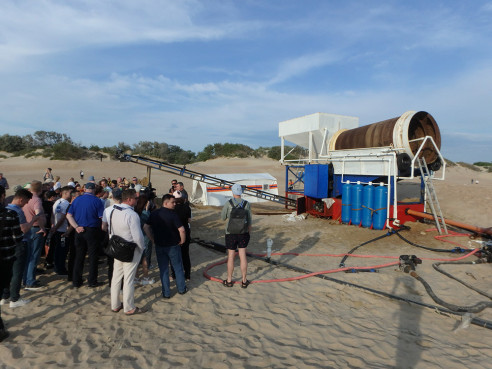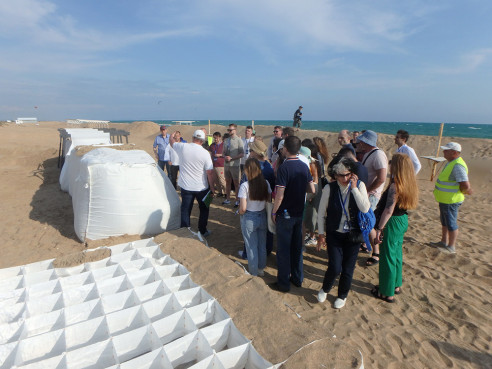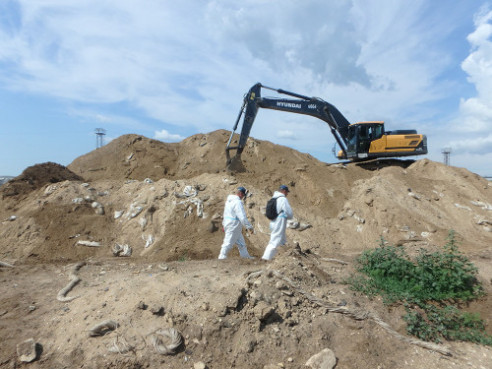Scientists from Shirshov Institute of Oceanology of RAS and other leading Russian scientific institutions have developed proposals for organizing comprehensive monitoring of the ecosystems of the Black Sea coast after the oil spill resulting from the tanker accident in December 2024.
The set of measures was presented as part of a satellite event of the V Congress of Young Scientists, during which more than 100 expert scientists from 30 Russian cities, government representatives, and volunteers selected the best solutions for eliminating the consequences of the fuel oil spill in the sea and on land, as well as a comprehensive monitoring system for marine and terrestrial ecosystems.
Scientists presented their projects in 4 categories: sea, land, ecology and monitoring. The curator of the group in the direction of "A set of measures for monitoring terrestrial and coastal ecosystems in the Kerch Strait" was Vyacheslav Krylenko, a senior researcher at the Southern Branch of Shirshov Institute of Oceanology of the Russian Academy of Sciences.
Oceanologists have proposed solutions aimed at both the short-term (1 year) and long-term (10 years).
At the first stage in 2025, a zero cycle of monitoring is carried out, organizational issues on the deployment of the observation network are resolved. The coastal part of the research covers the coastal strip from Cape Zhelezny Rog to Cape Anapsky (55 km), the coastal water area up to the 7 m isobath, determined by the dynamics of coastal sediments. The work will be carried out along transverse coastal profiles drawn every 1 km, which will ensure the geographical unity of the entire complex of studies.
To assess the current situation, geodetic works were carried out to prepare a topographic base; remote, in-kind, analytical studies of the relief; chemical and microbiological studies on 55 reference profiles; landscape, biogeographic, geobotanical and sozological studies are carried out in key areas to assess the population of rare and endangered species. In the future, based on the data obtained at the first stage, it is planned to develop a program of multi-year comprehensive geoecological monitoring.
The work performed will allow us to assess the effectiveness of emergency recovery operations and identify environmentally vulnerable areas to strengthen control, form a unified system for monitoring the marine environment and ensure prompt elimination of the consequences of emergency situations in the future.
Currently, the solutions proposed by scientists are under consideration by the Ministry of Education and Science, the Ministry of Emergency Situations and other agencies.


